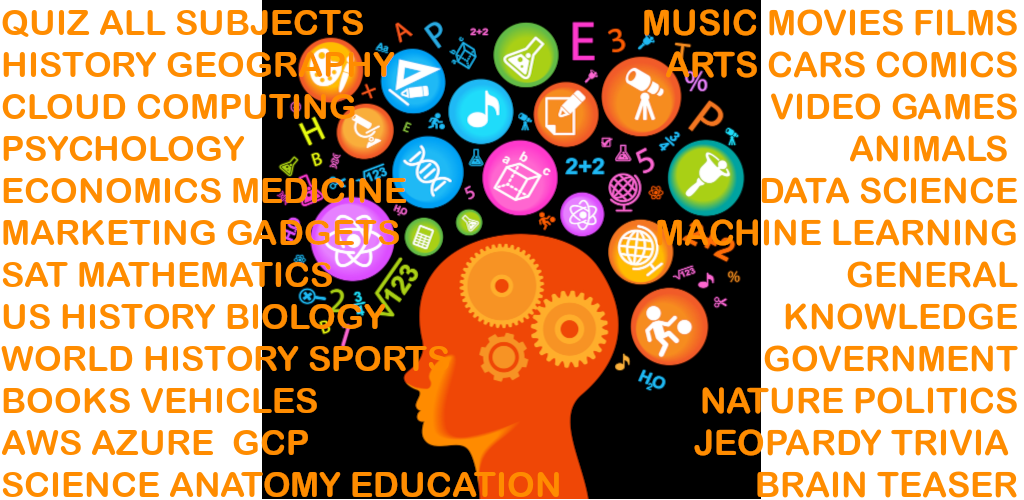Will software engineers ever stop being in demand?
It’s safe to say that software engineering is a hot profession. And it doesn’t look like demand for software engineers is going to decrease any time soon. So, if you’re thinking about becoming a software engineer, now is a good time to do it! But what does the future hold for this in-demand profession? Keep reading to find out!
What is a Software Engineer? According to Wikipedia, A software engineer is a person who applies the principles of software engineering to design, develop, maintain, test, and evaluate computer software. The term programmer is sometimes used as a synonym, but may also lack connotations of engineering education or skills.
It’s hard to believe, but demand for software engineers shows no sign of abating. Despite automation and the ever-growing availability of open source software, companies are still finding that they need people with specialized skills to design, build, and maintain their applications.
The question is “Will software engineers ever stop being in demand?”
There are two schools of thought.
- Those with a background in business see developers as commodities and fully believe that programmers will program themselves out of a job field. The idea is that in some distant future, jobs like project manager, product manager, and marketing manager will still be critical but programmers themselves will be extinct as a result of the tools they created.
- The other school of thought is hard to understand because the programmers are laughing so hard they can’t talk.
Its funny that the marketing manager doesn’t think he’s going to get automated out of existence.
What’s interesting is that marketing and software engineers (product people) are inextricably tied and both respond to the ever-changing needs of human beings.
Finance, Accounting and Operational functions will increasingly be automated. Marketing can automate some things but for the foreseeable future, you will need a human being to use a mix of intuition and data to figure out what to build, just as you will need a human being to figure out the best way to build it (engineers).
Any business partner worth their salt in today’s economy knows software engineers are your most valuable asset. Period.
“Any business partner worth their salt in today’s economy knows software engineers are your most valuable asset. Period.” I’m shocked and thrilled by this statement. I’ve often seen engineers treated as as expensive data entry specialists. But engineering has a steep learning curve and it requires a lot of time and concentration to master. Plus engineers acquire a lot of tribal knowledge during their time at a company, which is important because reading code is not as easy as reading a book. New engineers take time to get fully up to speed.
In 1980 I read in a newspaper that software developers would be extinct by year 2000. Probably something that could be extrapolated from the Maya calendar or Nostradamus or something.
People have been predicting the demise of programmers since the invention of COBOL. That’s a long time ago, for you youngsters.
Business people are taught to believe everyone but themselves are expendable. What we often ignore is that making people expendable requires code… the very people we wish not to be dependent on.
I wish business and engineering folks had a more symbiotic relationship, because the truth is, when business and engineers are on the same page and have mutual respect for the value the other brings, companies become unstoppable.
Advertise with us - Post Your Good Content Here
We are ranked in the Top 20 on Google
AI Dashboard is available on the Web, Apple, Google, and Microsoft, PRO version
I stopped laughing awhile ago, because the joke is so old that it stopped being funny a long time ago. I personally saw several iterations of software companies coming up with programmer replacement tools, and many bean counters actually bought into it and spent $billions. One can go through the glossary of dead buried developer replacement tools and take your pick, but most laymen probably heard of program generators and 4GL. None of them even came close to achieving their stated goal, and all are 6-feet under now. The most laughable part is that COBOL, the original human understandable programming language is still being used today. So, I say to those “visionaries” not to bother, but just keep using COBOL if replacing the programmers is your inspiration.
I heard this exact same claim 25 years ago from 4 Harvard grads (who were hiring myself and three of my colleagues to develop a product) who said XML would making coding obsolete.
I would love to watch a product manager attempt to use a tool like co-pilot to write code himself…on any sizable codebase, it would take ten developers ten years each to unravel the mess that individual would make per 10k lines of code he “produced”.
Take a hard look at Elon Musk
Not only can he code
He can imagine new modes of transportation
He can imagine new ways to recover rocket boosters
He can imagine new applications to compensate people for their labors
In Conclusion:
Egomaniacal Software Engineers need to be exited from the profession
Software Engineers who can use their coding and enterprise-architect skillsets to address a new market…are worth their weight in GOLD
Being a programmer who has tried “low code solutions” they are nothing like custom-made solutions by a developer. And even with low-code solutions, you still need to employ a lot of the same type of reasoning and skills that a programmer would or you’re going to come out with a crappy end result for all but the simplest automations. Even if it were the case that people think programmers will automate themselves out of a job (not something I foresee and if you understand programming, you see it too) but even if they would, this is VERY far in the future and not something I’ll be worrying about at night 🙂
Alternate view:
I’m a software developer. However, I disagree with this. When artificial general intelligence arrives, it could in principle take the role of the engineer away from a human.
I’m aware of the comic strip jokes about this, but I feel they miss an important point. I’m not talking about there being an even higher level language that somehow simplifies the source code beyond what would be possible. You can make it as simple as possible, but not any simpler.
Consider a freelance engineer. Their job is to listen to the needs to the client, and fill in the gaps in their vague and informal specification, and to understand the clients needs in a way the client themselves cannot, to facilitate the development of a formal specification (the code itself), and its technical implementation.
The engineer chooses appropriate algorithms, researches appropriate technologies, and instruments the production of the software on behalf of their client.
I can’t see a reason why a generally intelligent machine could not fulfil the same role – we ourselves are probably just quasi-generally intelligent automatons. In this sense, the “even higher level language” is the system of inference the AI is using to be able to produce the complete and formal specification.
Of course, without proper AI, you can’t do this sort of thing properly. However, I think it’s a mistake to discount the possibility.
Probably, this is a very long way off into the future. There will surely still be people writing code for the fun of it. However, once the responsibility of a developer can be delegated to an AI, it makes for a good business case to use it. Possibly, the logical end of this technology is a self-sustaining system of machines that mine material, assemble factories, construct tools, and produce products – while repairing each other in the case of failures.
So keep on laughing for now, but probably you won’t have the last laugh. Hopefully, maybe idealistically, the last laugh will be shared between us all.
Rebuke:
What you’re missing is that we don’t even know what we don’t know about AGI yet. We’re barely closer to AGI than we’ve been for the past fifty years.
There’s another thing too: Programming is one of the harder human endeavors. The very first AGI may not even be much more capable than an average human with an integrated mind reading calculator. There’s no guarantee that it will immediately be smarter than a human. But it would be able to do menial jobs that still need a human, assuming its hardware can be made to be cheap enough. (Say it requires some new kind of chip with quantum properties.)
As it learns more it will be able to do harder and harder jobs.
So effectively every other job will be able to be done by an AGI before an AGI will be able to do the job of a human.
Meaning that if cheap AGI becomes a thing, humans will either be killed off a la Terminator or put on some kind of UBI well before software engineers lose their jobs to computers. If AGI stays perpetually expensive, though, then you’ll just have new AGI “people” joining the workforce in small numbers.
Artificial intelligence doesn’t have intuition and also can’t find relations between processes unless those are very obvious and have obvious pattern. Human brain is hard to simulate because we still don’t know everything about it and even if we would do, it would be to complex to make simulation of it.
source: Here
Active Hydrating Toner, Anti-Aging Replenishing Advanced Face Moisturizer, with Vitamins A, C, E & Natural Botanicals to Promote Skin Balance & Collagen Production, 6.7 Fl Oz


Age Defying 0.3% Retinol Serum, Anti-Aging Dark Spot Remover for Face, Fine Lines & Wrinkle Pore Minimizer, with Vitamin E & Natural Botanicals


Firming Moisturizer, Advanced Hydrating Facial Replenishing Cream, with Hyaluronic Acid, Resveratrol & Natural Botanicals to Restore Skin's Strength, Radiance, and Resilience, 1.75 Oz

Skin Stem Cell Serum


Smartphone 101 - Pick a smartphone for me - android or iOS - Apple iPhone or Samsung Galaxy or Huawei or Xaomi or Google Pixel
Can AI Really Predict Lottery Results? We Asked an Expert.

Djamgatech

Read Photos and PDFs Aloud for me iOS
Read Photos and PDFs Aloud for me android
Read Photos and PDFs Aloud For me Windows 10/11
Read Photos and PDFs Aloud For Amazon
Get 20% off Google Workspace (Google Meet) Business Plan (AMERICAS): M9HNXHX3WC9H7YE (Email us for more)
Get 20% off Google Google Workspace (Google Meet) Standard Plan with the following codes: 96DRHDRA9J7GTN6(Email us for more)
FREE 10000+ Quiz Trivia and and Brain Teasers for All Topics including Cloud Computing, General Knowledge, History, Television, Music, Art, Science, Movies, Films, US History, Soccer Football, World Cup, Data Science, Machine Learning, Geography, etc....

List of Freely available programming books - What is the single most influential book every Programmers should read
- Bjarne Stroustrup - The C++ Programming Language
- Brian W. Kernighan, Rob Pike - The Practice of Programming
- Donald Knuth - The Art of Computer Programming
- Ellen Ullman - Close to the Machine
- Ellis Horowitz - Fundamentals of Computer Algorithms
- Eric Raymond - The Art of Unix Programming
- Gerald M. Weinberg - The Psychology of Computer Programming
- James Gosling - The Java Programming Language
- Joel Spolsky - The Best Software Writing I
- Keith Curtis - After the Software Wars
- Richard M. Stallman - Free Software, Free Society
- Richard P. Gabriel - Patterns of Software
- Richard P. Gabriel - Innovation Happens Elsewhere
- Code Complete (2nd edition) by Steve McConnell
- The Pragmatic Programmer
- Structure and Interpretation of Computer Programs
- The C Programming Language by Kernighan and Ritchie
- Introduction to Algorithms by Cormen, Leiserson, Rivest & Stein
- Design Patterns by the Gang of Four
- Refactoring: Improving the Design of Existing Code
- The Mythical Man Month
- The Art of Computer Programming by Donald Knuth
- Compilers: Principles, Techniques and Tools by Alfred V. Aho, Ravi Sethi and Jeffrey D. Ullman
- Gödel, Escher, Bach by Douglas Hofstadter
- Clean Code: A Handbook of Agile Software Craftsmanship by Robert C. Martin
- Effective C++
- More Effective C++
- CODE by Charles Petzold
- Programming Pearls by Jon Bentley
- Working Effectively with Legacy Code by Michael C. Feathers
- Peopleware by Demarco and Lister
- Coders at Work by Peter Seibel
- Surely You're Joking, Mr. Feynman!
- Effective Java 2nd edition
- Patterns of Enterprise Application Architecture by Martin Fowler
- The Little Schemer
- The Seasoned Schemer
- Why's (Poignant) Guide to Ruby
- The Inmates Are Running The Asylum: Why High Tech Products Drive Us Crazy and How to Restore the Sanity
- The Art of Unix Programming
- Test-Driven Development: By Example by Kent Beck
- Practices of an Agile Developer
- Don't Make Me Think
- Agile Software Development, Principles, Patterns, and Practices by Robert C. Martin
- Domain Driven Designs by Eric Evans
- The Design of Everyday Things by Donald Norman
- Modern C++ Design by Andrei Alexandrescu
- Best Software Writing I by Joel Spolsky
- The Practice of Programming by Kernighan and Pike
- Pragmatic Thinking and Learning: Refactor Your Wetware by Andy Hunt
- Software Estimation: Demystifying the Black Art by Steve McConnel
- The Passionate Programmer (My Job Went To India) by Chad Fowler
- Hackers: Heroes of the Computer Revolution
- Algorithms + Data Structures = Programs
- Writing Solid Code
- JavaScript - The Good Parts
- Getting Real by 37 Signals
- Foundations of Programming by Karl Seguin
- Computer Graphics: Principles and Practice in C (2nd Edition)
- Thinking in Java by Bruce Eckel
- The Elements of Computing Systems
- Refactoring to Patterns by Joshua Kerievsky
- Modern Operating Systems by Andrew S. Tanenbaum
- The Annotated Turing
- Things That Make Us Smart by Donald Norman
- The Timeless Way of Building by Christopher Alexander
- The Deadline: A Novel About Project Management by Tom DeMarco
- The C++ Programming Language (3rd edition) by Stroustrup
- Patterns of Enterprise Application Architecture
- Computer Systems - A Programmer's Perspective
- Agile Principles, Patterns, and Practices in C# by Robert C. Martin
- Growing Object-Oriented Software, Guided by Tests
- Framework Design Guidelines by Brad Abrams
- Object Thinking by Dr. David West
- Advanced Programming in the UNIX Environment by W. Richard Stevens
- Hackers and Painters: Big Ideas from the Computer Age
- The Soul of a New Machine by Tracy Kidder
- CLR via C# by Jeffrey Richter
- The Timeless Way of Building by Christopher Alexander
- Design Patterns in C# by Steve Metsker
- Alice in Wonderland by Lewis Carol
- Zen and the Art of Motorcycle Maintenance by Robert M. Pirsig
- About Face - The Essentials of Interaction Design
- Here Comes Everybody: The Power of Organizing Without Organizations by Clay Shirky
- The Tao of Programming
- Computational Beauty of Nature
- Writing Solid Code by Steve Maguire
- Philip and Alex's Guide to Web Publishing
- Object-Oriented Analysis and Design with Applications by Grady Booch
- Effective Java by Joshua Bloch
- Computability by N. J. Cutland
- Masterminds of Programming
- The Tao Te Ching
- The Productive Programmer
- The Art of Deception by Kevin Mitnick
- The Career Programmer: Guerilla Tactics for an Imperfect World by Christopher Duncan
- Paradigms of Artificial Intelligence Programming: Case studies in Common Lisp
- Masters of Doom
- Pragmatic Unit Testing in C# with NUnit by Andy Hunt and Dave Thomas with Matt Hargett
- How To Solve It by George Polya
- The Alchemist by Paulo Coelho
- Smalltalk-80: The Language and its Implementation
- Writing Secure Code (2nd Edition) by Michael Howard
- Introduction to Functional Programming by Philip Wadler and Richard Bird
- No Bugs! by David Thielen
- Rework by Jason Freid and DHH
- JUnit in Action
#BlackOwned #BlackEntrepreneurs #BlackBuniness #AWSCertified #AWSCloudPractitioner #AWSCertification #AWSCLFC02 #CloudComputing #AWSStudyGuide #AWSTraining #AWSCareer #AWSExamPrep #AWSCommunity #AWSEducation #AWSBasics #AWSCertified #AWSMachineLearning #AWSCertification #AWSSpecialty #MachineLearning #AWSStudyGuide #CloudComputing #DataScience #AWSCertified #AWSSolutionsArchitect #AWSArchitectAssociate #AWSCertification #AWSStudyGuide #CloudComputing #AWSArchitecture #AWSTraining #AWSCareer #AWSExamPrep #AWSCommunity #AWSEducation #AzureFundamentals #AZ900 #MicrosoftAzure #ITCertification #CertificationPrep #StudyMaterials #TechLearning #MicrosoftCertified #AzureCertification #TechBooks
Top 1000 Canada Quiz and trivia: CANADA CITIZENSHIP TEST- HISTORY - GEOGRAPHY - GOVERNMENT- CULTURE - PEOPLE - LANGUAGES - TRAVEL - WILDLIFE - HOCKEY - TOURISM - SCENERIES - ARTS - DATA VISUALIZATION

Top 1000 Africa Quiz and trivia: HISTORY - GEOGRAPHY - WILDLIFE - CULTURE - PEOPLE - LANGUAGES - TRAVEL - TOURISM - SCENERIES - ARTS - DATA VISUALIZATION

Exploring the Pros and Cons of Visiting All Provinces and Territories in Canada.

Exploring the Advantages and Disadvantages of Visiting All 50 States in the USA

Health Health, a science-based community to discuss health news and the coronavirus (COVID-19) pandemic
- US infant mortality increased in 2022 for the first time in decades, CDC report showsby /u/cnn on July 25, 2024 at 6:37 pm
submitted by /u/cnn [link] [comments]
- Study raises hopes that shingles vaccine may delay onset of dementia | Dementia | The Guardianby /u/chilladipa on July 25, 2024 at 3:38 pm
submitted by /u/chilladipa [link] [comments]
- How fit is your city? New rankings by the American College of Sports Medicineby /u/idc2011 on July 25, 2024 at 3:35 pm
submitted by /u/idc2011 [link] [comments]
- Twice-Yearly Lenacapavir or Daily F/TAF for HIV Prevention in Cisgender Women | New England Journal of Medicineby /u/chilladipa on July 25, 2024 at 3:30 pm
submitted by /u/chilladipa [link] [comments]
- Biden Made a Healthy Decisionby /u/theatlantic on July 25, 2024 at 3:15 pm
submitted by /u/theatlantic [link] [comments]
Today I Learned (TIL) You learn something new every day; what did you learn today? Submit interesting and specific facts about something that you just found out here.
- TIL actor John Larroquette was the uncredited narrator of the prologue to the 1974 horror movie Texas Chainsaw Massacre. In lieu of cash, he was paid by the Director Tobe Hooper in Marijuana.by /u/openletter8 on July 25, 2024 at 6:56 pm
submitted by /u/openletter8 [link] [comments]
- TIL that the every Shakopee Mdewakanton Sioux indian receives a payout of around $1 million per year from casino profits.by /u/friendlystranger4u on July 25, 2024 at 6:22 pm
submitted by /u/friendlystranger4u [link] [comments]
- TIL Motorcycles in China are dictated by law to be decommissioned and destroyed in 13 years after registration regardless of the conditionsby /u/Easy_Piece_592 on July 25, 2024 at 5:56 pm
submitted by /u/Easy_Piece_592 [link] [comments]
- TIL a man named Jonathan Riches has filed more than 2,600 lawsuits since 2006. He even sued Guinness World Records to try to stop them from titling him as "the most litigious man in history".by /u/doopityWoop22 on July 25, 2024 at 5:03 pm
submitted by /u/doopityWoop22 [link] [comments]
- TIL that in 2018, an American half-pipe skier qualified for the Olympics despite minimal experience. Olympic requirements stated that an athlete needed to place in the top 30 at multiple events. She simply sought out events with fewer than 30 participants, showed up, and skied down without falling.by /u/ctdca on July 25, 2024 at 4:28 pm
submitted by /u/ctdca [link] [comments]
Reddit Science This community is a place to share and discuss new scientific research. Read about the latest advances in astronomy, biology, medicine, physics, social science, and more. Find and submit new publications and popular science coverage of current research.
- Abstinence-only sex education linked to higher pornography use among women | This finding adds to the ongoing conversation about the effectiveness and impacts of different sexuality education approaches.by /u/chrisdh79 on July 25, 2024 at 6:49 pm
submitted by /u/chrisdh79 [link] [comments]
- AlphaProof and AlphaGeometry 2 AI models achieve silver medal standard in solving International Mathematical Olympiad problemsby /u/Big_Profit9076 on July 25, 2024 at 5:59 pm
submitted by /u/Big_Profit9076 [link] [comments]
- Scientists have described a new species of chordate, Nuucichthys rhynchocephalus, the first soft-bodied vertebrate from the Drumian Marjum Formation of the American Great Basin.by /u/grimisgreedy on July 25, 2024 at 5:55 pm
submitted by /u/grimisgreedy [link] [comments]
- Secularists revealed as a unique political force in America, with an intriguing divergence from liberals. Unlike nonreligiosity, which denotes a lack of religious affiliation or belief, secularism involves an active identification with principles grounded in empirical evidence and rational thought.by /u/mvea on July 25, 2024 at 5:40 pm
submitted by /u/mvea [link] [comments]
- New shingles vaccine could reduce risk of dementia. The study found at least a 17% reduction in dementia diagnoses in the six years after the new recombinant shingles vaccination, equating to 164 or more additional days lived without dementia.by /u/Wagamaga on July 25, 2024 at 4:48 pm
submitted by /u/Wagamaga [link] [comments]
Reddit Sports Sports News and Highlights from the NFL, NBA, NHL, MLB, MLS, and leagues around the world.
- A's place their lone all-star, Mason Miller, on IL with fractured finger after hitting training tableby /u/Oldtimer_2 on July 25, 2024 at 8:15 pm
submitted by /u/Oldtimer_2 [link] [comments]
- Flyers sign All-Star Travis Konecny to an 8-year extension worth $70 millionby /u/Oldtimer_2 on July 25, 2024 at 7:45 pm
submitted by /u/Oldtimer_2 [link] [comments]
- Bills’ Von Miller says he believes domestic assault case to be closed, with no charges filedby /u/Oldtimer_2 on July 25, 2024 at 7:43 pm
submitted by /u/Oldtimer_2 [link] [comments]
- Padres' Dylan Cease throws no-hitter vs. Nationalsby /u/Oldtimer_2 on July 25, 2024 at 7:41 pm
submitted by /u/Oldtimer_2 [link] [comments]
- Appeal denied in Valieva case; U.S. skaters to get gold in Parisby /u/PrincessBananas85 on July 25, 2024 at 6:18 pm
submitted by /u/PrincessBananas85 [link] [comments]

















 96DRHDRA9J7GTN6
96DRHDRA9J7GTN6